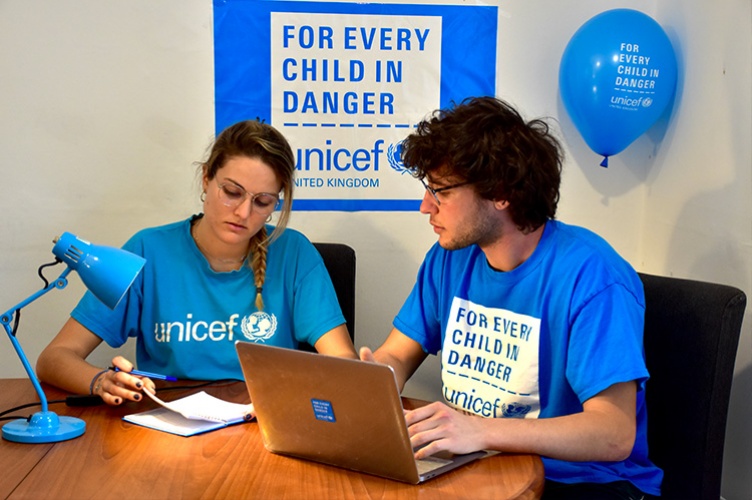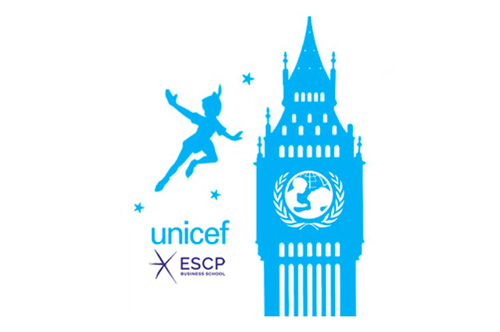The UNICEF International Strategic Plan
On 15 February 2021, the UNICEF ESCP team was granted the honour of taking part in the UNICEF International Strategic Plan of 2022-2025.
The UNICEF Strategic Plan is a tool for enhancing UNICEF’s work for children across the globe. It is released every three years by gathering multiple UN partners for each Goal Area.
There are 5 Goal Areas to focus on until 2030, namely:
- Goal Area 1: Every child survives and thrives
- Goal Area 2: Every child learns
- Goal Area 3: Every child is protected from violence and exploitation
- Goal Area 4: Every child lives in a safe and clean environment
- Goal Area 5: Every child has an equitable chance in life
The UNICEF Strategic Plan (SP) is highly essential as it permits the organisation to align its resources with common goals and strategies. The SP also acts as an internal and external vehicle to inform about UNICEF and the lives of children throughout the world. The SP supports Sustainable Development Goals, assists UNICEF and other UN partners in making strategic choices, and strengthens its accountability framework.
Every three years, UNICEF’s direct contributions and result areas are reassessed to achieve the Goal Areas mentioned above. Strategies for Goal Areas are being discussed among UN partners, such as: WHO, World Bank, UNDP, UNESCO and UN-Women.
For the first time in its history, UNICEF asks young ambassadors like us to take a stand and use our voices during the Strategic Plan discussions. UNICEF operates 33 National Committees, which work to increase awareness and raise funds – mainly from the private sector. The National Committees are rich countries that shape UNICEF’s strategies in the 190 countries where the organisation operates.
The unprecedented COVID-19 pandemic has highlighted areas of concern such as: the rising risks of a worldwide economic crisis, climate change and increasing humanitarian needs, gaps, and challenges. The Strategic Plan (SP) meeting focused on two main questions that were to be discussed and answered within two and a half hours.
Question 1
What needs to be done to help children and teenagers, specifically those most marginalised (disabled children and those not enrolled at a school), learn and develop skills they will need in their daily and future lives?
Question 2
What lessons can be learnt from the COVID-19 pandemic?
On 15 February, I, Anna Lelorieux, President of UNICEF ESCP, met with six other young, French ambassadors to discuss the UNICEF Action Plan and initiatives. In preparation for the meeting, I invited the 25 UNICEF ESCP Paris and London team members to list their answers to the two questions mentioned above.
The COVID-19 pandemic was a real eye-opener for millions of young people around the world. Since the start of the pandemic, children have faced a rise in multidimensional poverty by 15%. For the first time in history, children have had to face similar issues: missing school, no access to quality digital learning, isolation and a negative impact on mental health and well-being. The situation is not normal. However, many people in developed countries do not realise how critical the condition is in under-developed countries.
While the biggest issue in many students’ lives may be that all the pubs and ‘party joints’ are closed, in contrast to this, there are millions of children and young adults facing armed conflicts, natural disasters, poverty, and complications caused by COVID-19. Taking a step back and looking outside our borders, we, millennials, are now opening our eyes to the millions of children out there, living in environments that have never been worse.
The world’s national lockdowns raised community issues and triggered an upsurge in solidarity and generosity among people and nations. Generations took heed of what was happening, further bridging the gaps between social and cultural differences within populations. For UNICEF ESCP members, the most critical action plan is to build stronger relationships between different communities, the rich and the poor, and between the privileged and underprivileged.
UNICEF ESCP Initiative 1
“Take advantage of the surge in awareness and make more volunteering programmes from UNICEF available.”
Young people are ready to help and unite in solidarity. We are prepared to go on the ground to give our time and make long-lasting commitments to ensure change as much as possible.
Our team will set this initiative into action during the months of volunteering we have planned in Nepal from January 2022. After we have raised funds for UNICEF UK and UNICEF France and awareness for children around the world, the next step will be implementing our ideas. Children need us, and it is time for our team to be the change we want to see in the world!
One of the most discussed Goal Areas for the SP 2022-2025 is Goal Area 2: “EVERY CHILD LEARNS”. COVID-19 has affected nearly every aspect of children’s lives, but the most dramatic and most consequential affect has been on their education. Childhood education is at risk in every country, everywhere in the world. Today, 168 million children are still missing out on school, which signals a severe COVID-19 education crisis. Children are paying the price in their ability to read, write and do basic maths; in their ability to gain 21st Century digital skills; in their mental health and social development, as they miss out on friendships and daily interactions; and in their safety, as school closures leave them vulnerable to abuse, child marriage and child labour. One hundred and sixty-eight million children cannot go another year without access to in-person schooling. Without urgent action, this could easily carry on for more than two years. This will reverse decades of hard-won progress. There are significant gaps in education by the time many children have reached 15, indicating that some will enter adult life with far fewer skills than their peers. One question that UNICEF is addressing, for its International Strategic Plan 2022-2025, is the following: What drives educational inequality among children?
In rich countries, the largest share of inequalities in a child’s educational progress is linked to family background. These inequalities already exist when children enter preschool and persist throughout a child’s education. Parental occupation, migration background, gender, and differences between schools can impact the efficiency of a child’s education. As a solution to this, we are asking to spare no effort to keep schools open, that authorities put schools first in any local reopening plans and that any openings are done safely to mitigate any associated risks. Children experiencing world emergencies, natural disasters or armed conflicts should have access to education, especially girls, who are at greater risk by comparison.
UNICEF ESCP Initiative 2
“Access to digital learning: build emergency classrooms with access to technology and quality digital learning.”
In preparation for the SP discussions, the UNICEF ESCP members mentioned the problems that arose due to digital learning inequalities. In many under-developed countries, technology is not a primary focus. For example, only 11% of Nepal’s schools are earthquake resistant, therefore access to technology is not a priority. However, children experiencing natural disasters or armed conflicts have the same right to an education as every other child, so solutions must be found.
In Syria, UNICEF has started building emergency classrooms, as it has been experiencing bombings for the last seven years. Emergency classrooms are temporary solutions that permit children to go to school. As part of the SP, these emergency classrooms could also be used as “cyber-hubs” where children can learn how to work with technology.
UNICEF ESCP Initiative 3
“UNICEF learning platform.”
Every child has the right to learn. Children should be capable of reading, writing and communicating well, but not all countries have the resources to provide this education. An idea that came up during the SP discussions is that UNICEF could develop a platform or a manual, tailored to each country, to help children embrace their full potential through learning and development. We see inspiring examples worldwide, ranging from sequenced openings in different parts of a country, to opening schools for different age groups, to new partnerships that deliver education to marginalised children. Furthermore, it is necessary to ensure that schools must be the last to close and the first to reopen in any lockdown situation. It is up to us to work with governments, teachers, and parents to provide every child with education, nutritious food, safety, and a fair chance in life. It is up to us to follow the evidence, which overwhelmingly indicates, that inequalities are more substantial today than ever before. Multiple UN partners are monitoring world health (WHO) and safety (NATO), but none of them monitor education. UNICEF can change this situation.

Anna Lelorieux
Chairwoman
UNICEF ESCP Societies
UNICEF ESCP was incredibly happy to take part in the Strategic Plan 2022-2025. In the coming days, reports from the 33 National Committees will be sent to New York, where the final world report will be drafted for public disclosure in early January 2022. Help UNICEF ESCP advocate for every child: the right to survive and thrive, to learn, to be protected from violence and to have a fair chance in life.
Big problems need big solutions from big players. The UNICEF ESCP societies have taken the opportunity to speak up and not leave things unnoticed.
UNICEF ESCP London is six months old and it has been a long road to frame our society. We have achieved our target of raising £1500 and we have written more than ten articles, reaching hundreds of people, regarding UNICEF’s work. UNICEF ESCP Paris is three months old and is more than ready to reproduce the same pattern. In January 2022, our team will fly to Nepal, one of the least developed countries globally, where we will put the above initiatives into action. Wherever they are, whoever they are and whenever they need us, UNICEF ambassadors will not give up until every child’s rights are protected.
Campus

